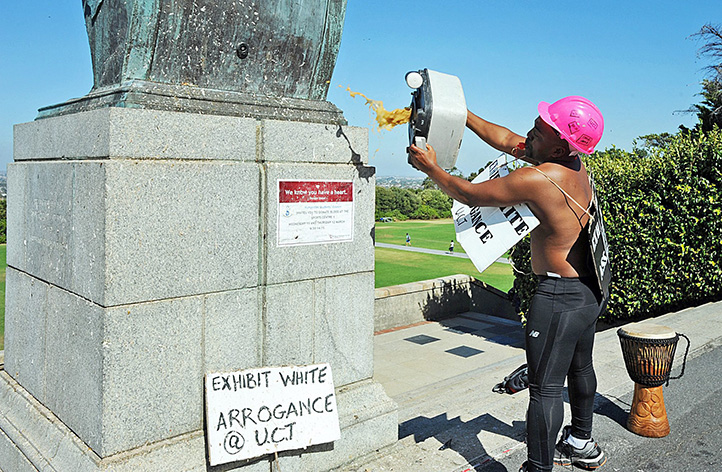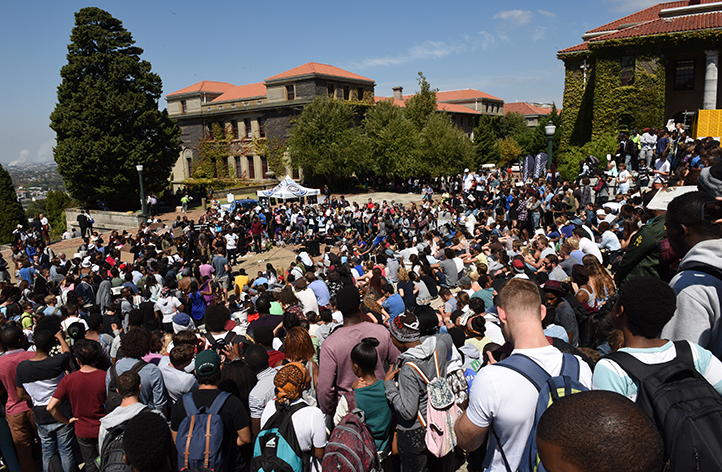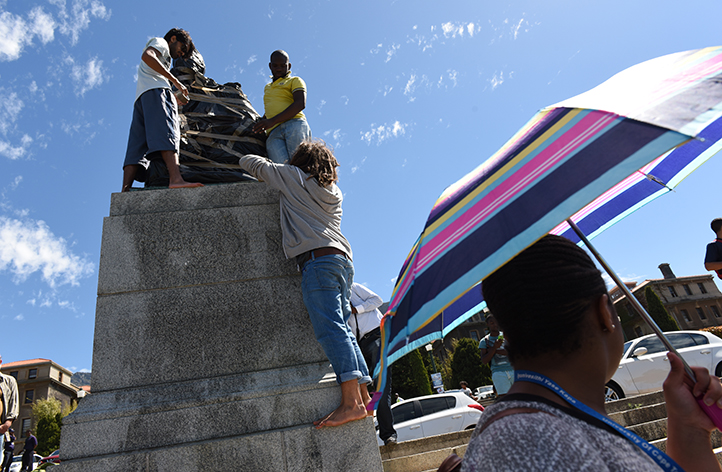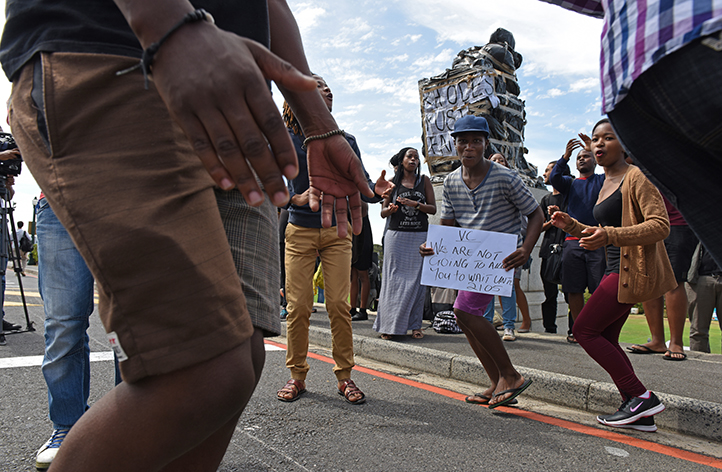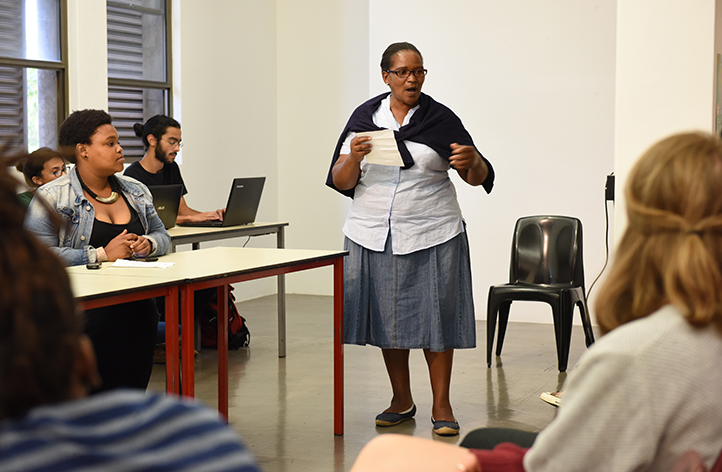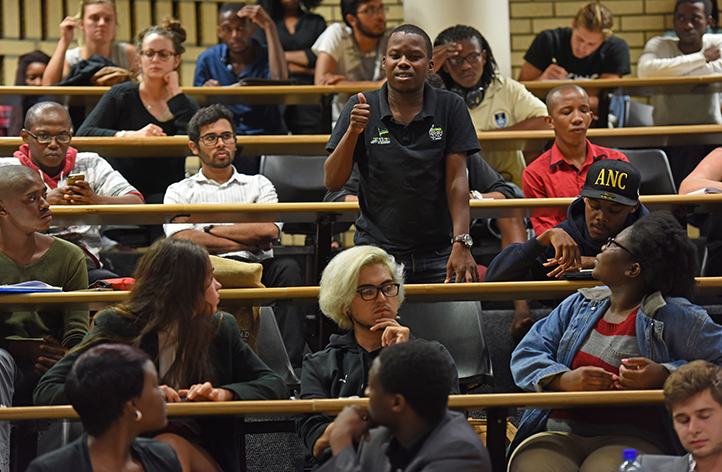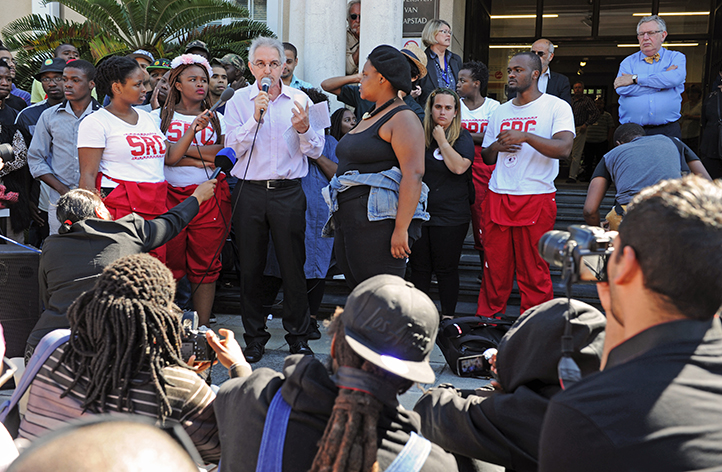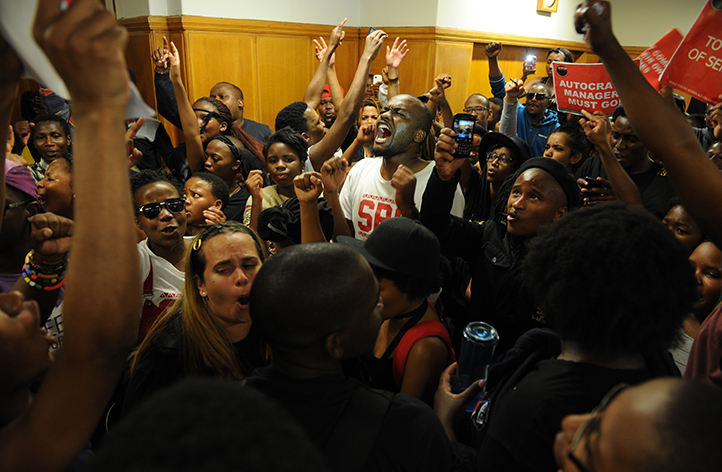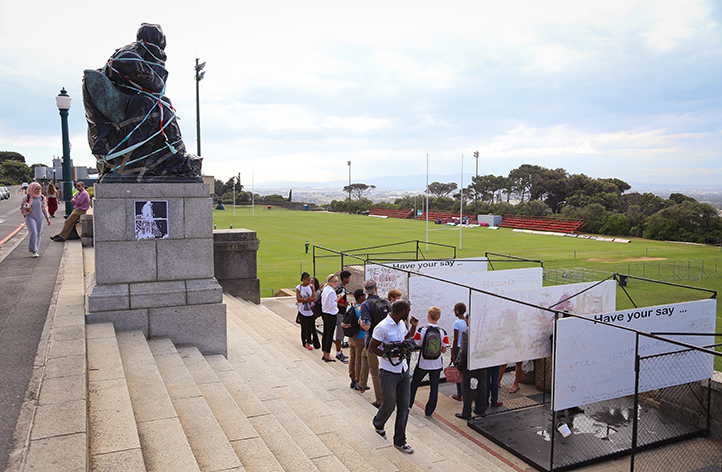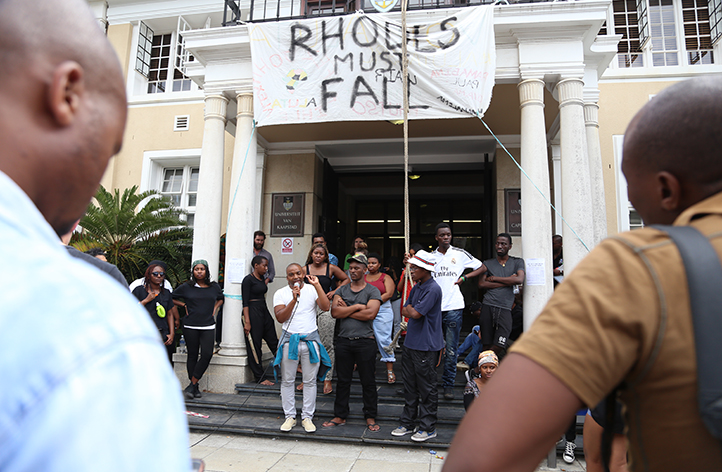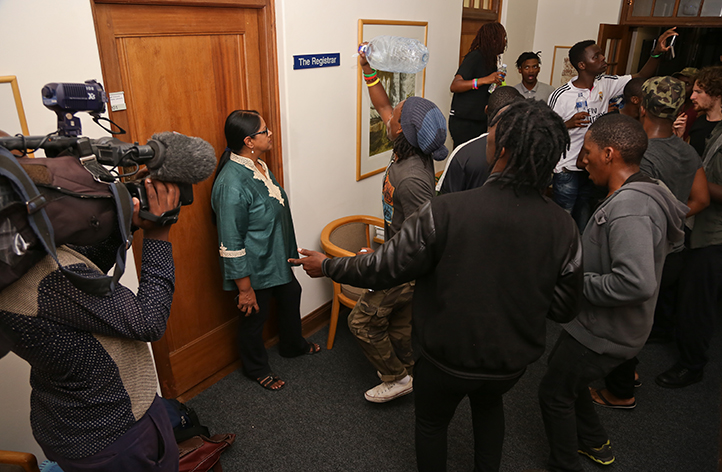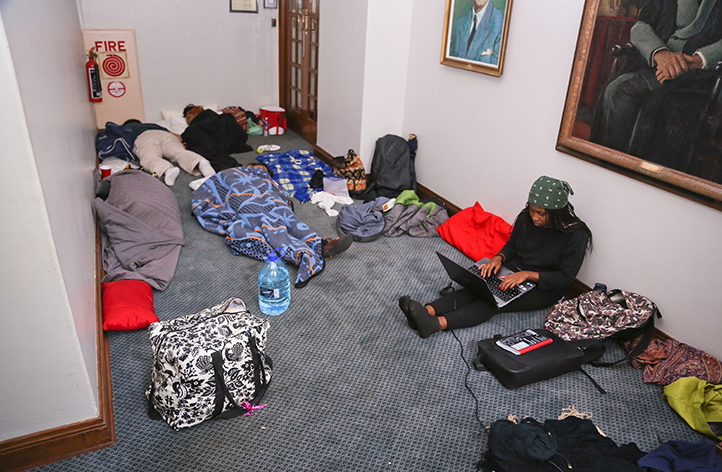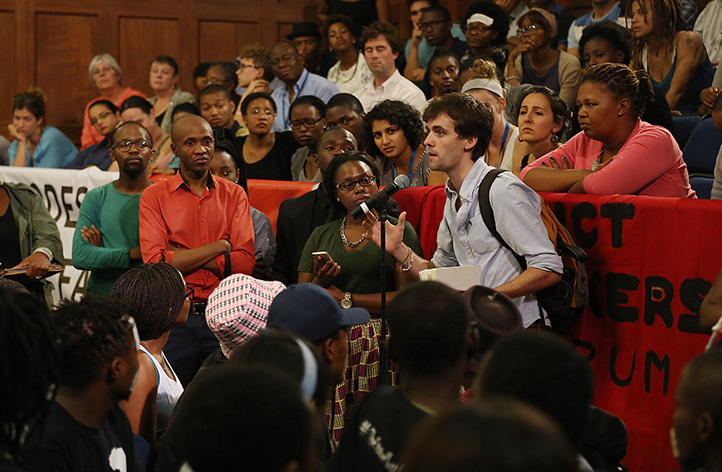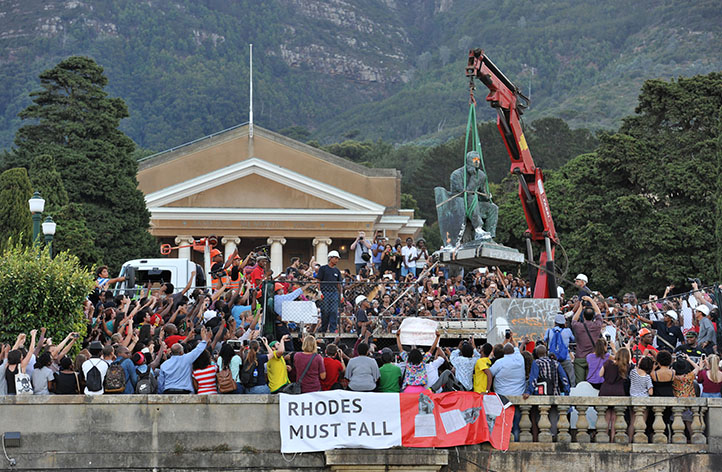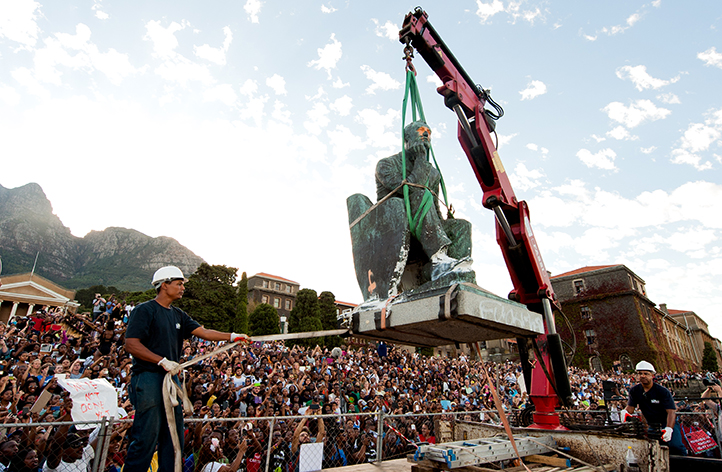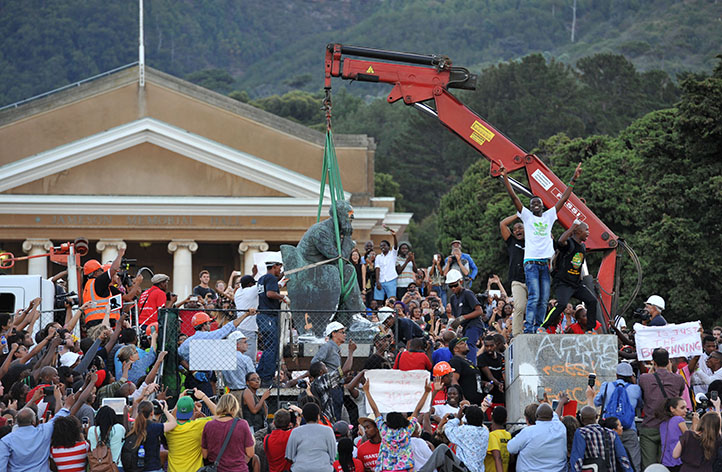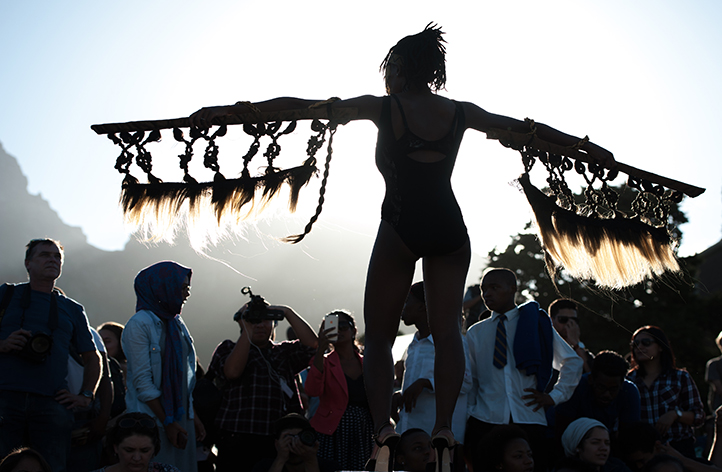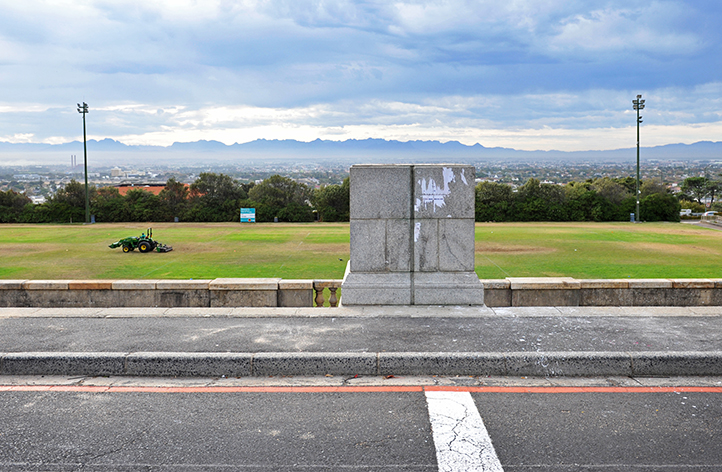#RhodesMustFall Scholarship Fund and annual lecture launched
12 April 2021 | Story Carla Bernardo. Photos Roger Sedres / Image SA. Video edit Nico Badenhuizen. Read time 6 min.The launch of the #RhodesMustFall (#RMF) Scholarship Fund, a student-led initiative supported by the University of Cape Town (UCT), and the accompanying inaugural #RMF Scholarship Public Lecture featuring guest speaker Emeritus Professor Njabulo S Ndebele, took place on Friday, 9 April 2021.
The launch, which was led by UCT Vice-Chancellor (VC) Professor Mamokgethi Phakeng, marked the sixth anniversary of the removal of the Cecil John Rhodes statue from its prominent position on the university’s main campus.
#RMF and the removal of the statue sparked months of protest action around the country in 2015, gave rise to related movements such as #FeesMustFall and #EndOutsourcing, and crossed borders, taking root in countries such as the United Kingdom and the United States.
“The protest action that led to the removal of the Rhodes statue … was initiated by UCT students. And so, all the victories that come out of that period are students’ victories,” said Professor Phakeng.
In her introductory remarks, Phakeng acknowledged the various stakeholders that were involved, willingly or not; the lines that were drawn that remain relevant in discussions about higher education today; and the implications of UCT being considered ‘ground zero’ for the #MustFall protests.
“All the victories that come out of that period are students’ victories.”
“Being a place of thought leadership comes with its own complexities, difficulties and opportunities. This is not an easy process; indeed, it is often a painful one. It forces us into spaces that can be challenging personally and collectively,” said Phakeng.
The scholarship and lecture will provide the university community with an opportunity to continue producing thought leaders who will be able to guide UCT and the broader society into the future. The VC added that the scholarship and lecture can also provide a step towards “healing and growth as a society, and towards [the] development of new voices in the discussion about the future of our country”.
“It is time to acknowledge our woundedness and start finding each other again. One step in this direction is to listen to each other and to allow an exchange of ideas and feelings to arise out of that listening.”
“It doesn’t mean that we have to agree with each other all the time; only that we commit to hearing each other,” said Phakeng.
Generational mission
Following the vice-chancellor’s introduction was a reflection and contextualisation of the #RMF movement by UCT alumnus Lindokuhle Patiwe. The former student activist, who now works as a research consultant at the Institute for Advancing Worker Justice and Legacy, thanked the university and Council for agreeing to the students’ proposal for the scholarship.
The scholarship, he said, is grounded in the principles and tools of analysis of the movement: Black Radical Feminism, Black Consciousness and Pan-Africanism. Therefore, the scholarship fund aims to financially support the next generation of activists, theorists and scholars working within these fields during their postgraduate studies.
Patiwe noted that the movement viewed these three pillars as “the centre of a radical politic in society”, one that was new to the institution and which can liberate society.

UCT Students’ Representative Council (SRC) President Declan Dyer was also in attendance to provide the current SRC’s perspective on #RMF, noting that the movement was not contained in the SRC but in the students themselves.
On the scholarship, Dyer called it a “consistent reminder of our generational mission”.
“It implores us to remember #RhodesMustFall and the subsequent movements and to contribute to a school of thought that takes us beyond coloniality,” he said.
Lifting the veil
The final speaker for the evening, and the guest speaker for the inaugural #RMF Scholarship Public Lecture, which will occur annually, was former UCT vice-chancellor Emeritus Professor Njabulo S Ndebele. He spoke on the topic, “What will rise after the fall of Rhodes?”
Professor Ndebele, who is the chair of the Nelson Mandela Foundation and the Mandela Rhodes Foundation, spoke about how the #RMF events of 2015 “reverberated across the world” and made clear its connections to other, more recent historic moments and movements, such as Black Lives Matter, The 1619 Project of the New York Times and COVID-19.
#RMF, said Ndebele, was “another attempt by oppressed people to lift the heavy veil of the world’s ignorance of white supremacists who, blinded by their profits, are unable to and do not want to see and know how they have debased and devastated the human in their natural landscape or people in the world that don’t look like them”.
“Let your essence be the source of your creativity.”
Ndebele noted how the current moment, the pandemic, is one in which a new story for South Africa, Africa and Africans can be co-created.
“The world I want to breathe in is the one many of us have been unable to create until perhaps this moment, now, when the conditions have arisen for me and you to create it. I want to breathe in a world that we now have to create,” he said.
Concluding the inaugural lecture, Ndebele quoted Paulo Freire’s Pedagogy of the Oppressed.
“‘This, then, is the great humanistic and historical task of the oppressed: to liberate themselves and their oppressors.’ So let your essence be the source of your creativity. That is what will give energy and shape to our economy, to our politics, to our religion, to our culture, to our schools and universities, to our communities, and in our interactions with our fellow citizens and with other nations.
“That is the wish and the dream that I have, and which I leave and share with you.”
 This work is licensed under a Creative Commons Attribution-NoDerivatives 4.0 International License.
This work is licensed under a Creative Commons Attribution-NoDerivatives 4.0 International License.
Please view the republishing articles page for more information.
#RMF Scholarship Fund and Public Lecture
Following an initiative of the Rhodes Must Fall (RMF) Scholarship Committee as proposed by student activists at the University of Cape Town, the university has launched the #RMF Scholarship Fund and hosted an RMF public lecture on 9 April 2021. The lecture will be hosted annually hereafter.
The Rhodes Must Fall Scholarship Fund is a new initiative that aims to raise funding to support students engaged in scholarship around the decolonisation of higher education.
Looking back to 2015
Removing Rhodes: a photo essay from April 2015
After one month of rolling protests about UCT’s colonial symbols and heritage, and calls for greater transformation, the statue of Cecil John Rhodes was removed from campus on 9 April 2015. We looked at the events leading up to its removal through a photographer’s lens.



















